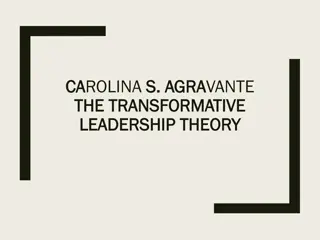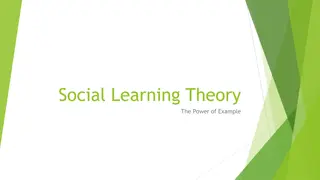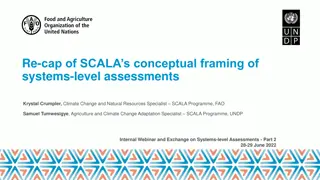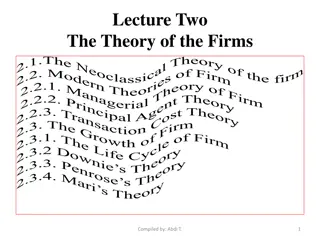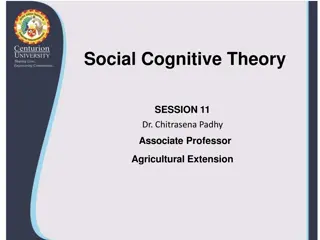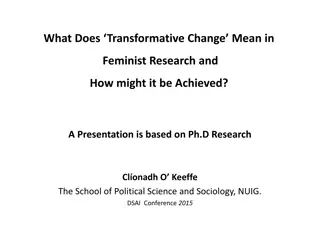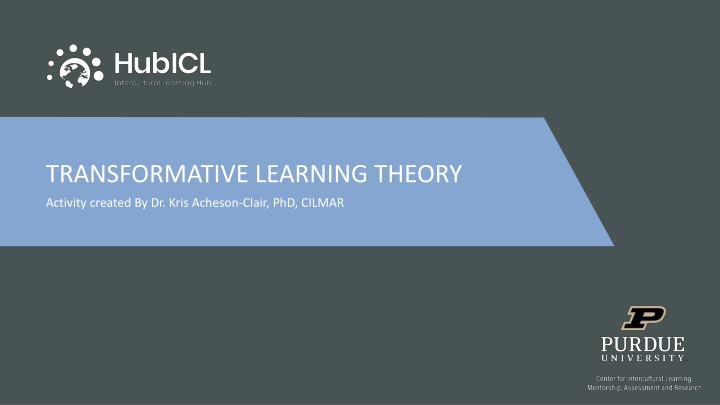
Transformative Learning Theory in Education
Dive into the world of Transformative Learning Theory, exploring its origins, key concepts, application at individual and organizational levels, and debates surrounding its effectiveness. Discover how this theory impacts educators, learners, and administrators in various educational settings.
Download Presentation

Please find below an Image/Link to download the presentation.
The content on the website is provided AS IS for your information and personal use only. It may not be sold, licensed, or shared on other websites without obtaining consent from the author. If you encounter any issues during the download, it is possible that the publisher has removed the file from their server.
You are allowed to download the files provided on this website for personal or commercial use, subject to the condition that they are used lawfully. All files are the property of their respective owners.
The content on the website is provided AS IS for your information and personal use only. It may not be sold, licensed, or shared on other websites without obtaining consent from the author.
E N D
Presentation Transcript
TRANSFORMATIVE LEARNING THEORY Activity created By Dr. Kris Acheson-Clair, PhD, CILMAR
TRANSFORMATIVE LEARNING THEORY Mezirow s Transformative Learning Theory: upon acquiring new information, adults evaluate their meaning structures (their perspectives and assumptions) and may alter their worldview accordingly. (Willard, 2022) Transformative Learning: learning that transforms problematic frames of reference to make them more inclusive, discriminating, reflective, open, and emotionally able to change. (Mezirow, 2009) Mezirow, J. (2009). Transformative learning theory. In J. Mezirow, and E. W. Taylor (Eds), Transformative learning in practice: Insights from community, workplace, and higher education (pp. 18-32).
TRANSFORMATIVE LEARNING THEORY Willard (2022) Let s co-construct a shared understanding of what TL entails how would you describe it to people who have never heard of it before (or educators who apply the term transformative to learning experiences without knowledge of TL theory)? Where did TL theory come from? Is this the only context in which it is applicable? Where else do you think it does a good job of explaining human experience? What language or terminology do you think is most important in TL theory? (Disorienting dilemma, critical reflection, self-efficacy, others?)
TRANSFORMATIVE LEARNING THEORY Willard (2022) What causes disorienting dilemmas (external vs. internal events)? What is it like to experience a disorienting dilemma (sudden vs. gradual, cognitive dissonance vs. embodied discomfort)? A big TL debate: Are changes to the deep structures of the self necessarily visible to others? TL is most often applied at the individual level to one learner, or to a cohort of learners. What did you think about the application of TL in the blog at the organizational level? Does this work? What would it take to make it happen? What would be the challenges?
TRANSFORMATIVE LEARNING THEORY Washburn (2021) Is TL theory too ambitious? How can we distinguish between change and TL? Is any change transformative, and if not, what makes a change transformative? Is transformative learning just good learning? What advantages does the TL theoretical framework provide educators? Learners? HEI administrators? Informal mentors? How does the characterization of TL as a move from the socialized mind to a self-authoring mind (Kegan, 2008) strike you? Does that fully capture the pro-social aspects of TL theory?
TRANSFORMATIVE LEARNING THEORY Washburn (2022) What are your thoughts about the challenges of assessing TL, including determining WHAT transforms? Identifying HOW the transformation occurs? Documenting to WHAT EXTENT it transforms? Which of these do you see as the most problematic?
TRANSFORMATIVE LEARNING THEORY Acheson et al. (2022) How does Hoggan s typology help us understand what we are trying to measure? What is your evaluation of how well the BEVI aligns with TL? What about the AAC&U VALUE rubrics? What about other assessments you are familiar with how would they line up with TL theory? If you were tasked with measuring TL in learners or mentees, how would you choose to go about it? Would you prefer quantitative or qualitative methods, for instance? Why? One point of data collection or more than one (and at what intervals)?


